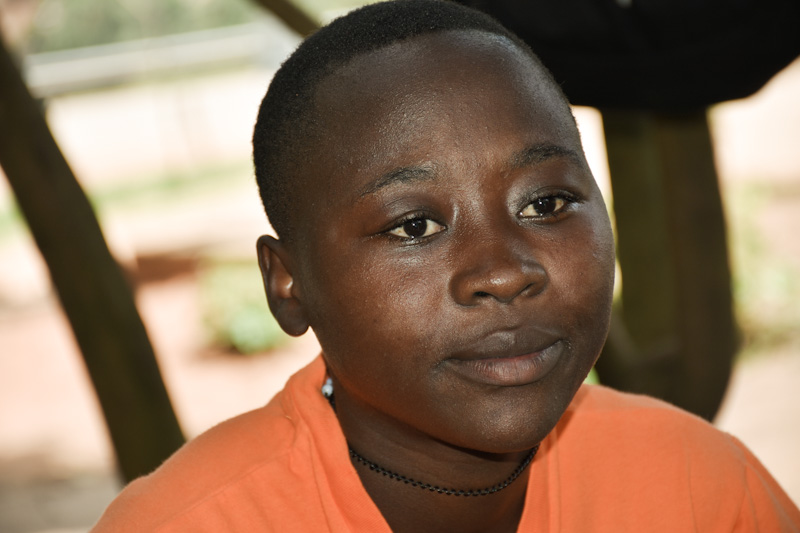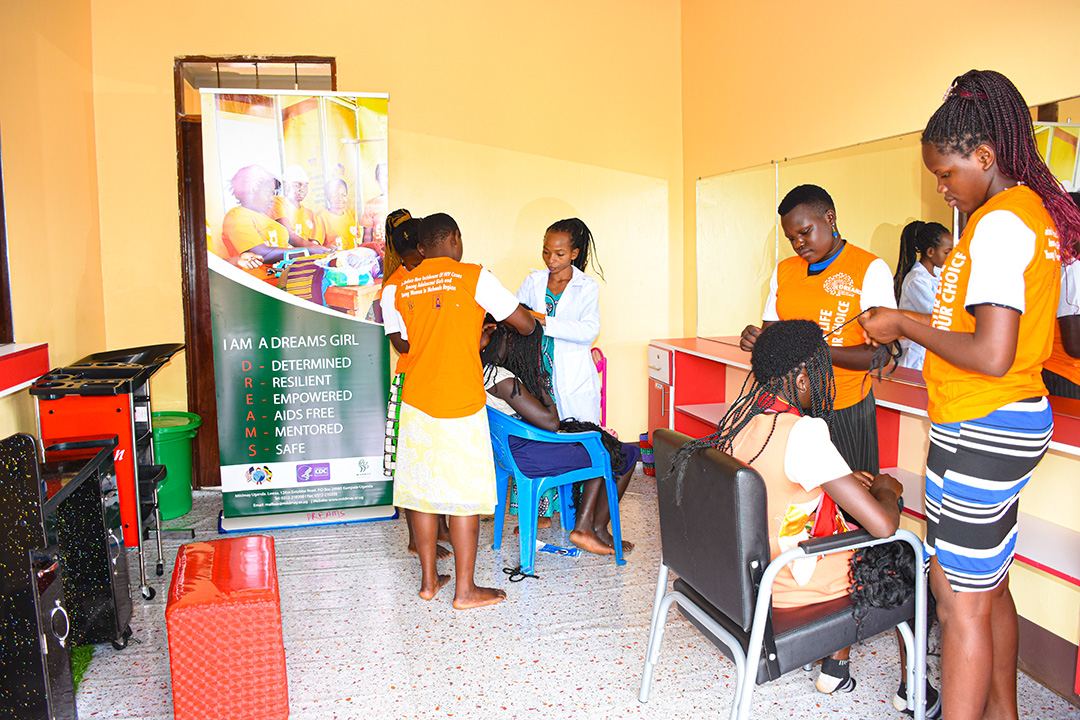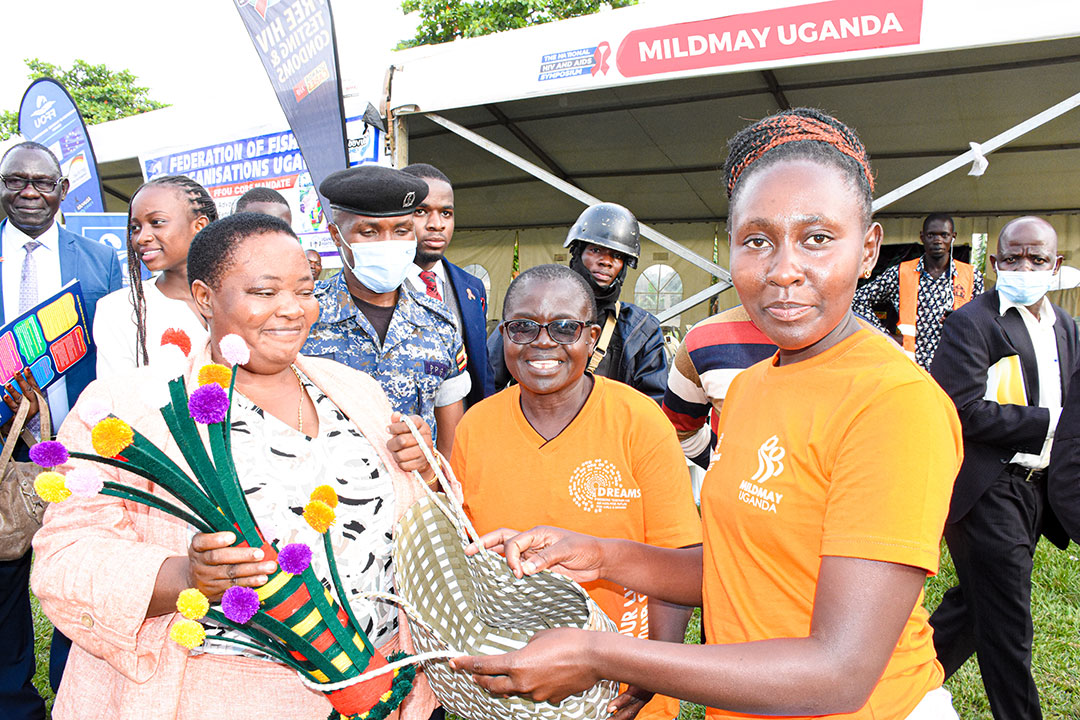- Give & Donate
- Reports
- Mildmay Hospital
- Mildmay Institute
- Mildmay Research

Poverty remains a key driver of HIV in Uganda. This coupled with other structural divers like gender-based violence and social cultural norms significantly predispose women to HIV. The situation is visibly worse among adolescent girls and young women aged 10 to 24 who are about 3 times more at risk than their counterparts’ males of the same age.
Mildmay Uganda with support from the U.S. President's Emergency Plan for AIDS Relief (PEPFAR) through Centers for Disease Control and Prevention (CDC) is implementing DREAMS-Determined, Resilient, Empowered, AIDS free, Mentored and Safe, an HIV initiative that aims at reducing new HIV infections among Adolescent Girls and Young Women (AGYWs) aged between 10 to 24 years.
For Margaret Nalugo 16 years old girl from Mubende district, her DREAMS experience has been transformational. Started transactional sex work at just 13 years after dropping out of school due to lack of school fees and key school requirements under the influence of a peer.
“My father is a drunkard, and my mother and siblings could not support my school requirements. We are seven at home and my mother would not adequately feed us, and I had to get the basic needs by myself. One day, my friend told me to meet her so that she tells me what to do. She told me that I must use my body to get money because I needed the money and the fact that my mother was not giving enough, I told her that I will do it if my mother doesn’t find out.”

“Every night I would get 5,000shillings with most times customers refusing to pay. I did this for two years until I was 15 years old. One day the DREAMS social workers were looking for girls that are in transaction sex and I enrolled in DREAMS. I tested for HIV and was surprised to get negative results,” she reveals.
Margaret has since received behavioural change trainings like Stepping - stones and Sinovuyo plus vocational skills including tailoring, baking and financial literacy. To this, Margaret narrates how her life has taken a turn. “I started going to the safe space every day for sessions like stepping - stones and SINOVUYO. It was not easy for me to leave transactional sex because I had started getting used to it. It took me six months to drop the behaviour. I quit because I realized that if you’re in transactional sex, you are at risk of getting HIV and that the 5,000 shillings i was getting was not worth it.”
With support from the DREAMS initiative, Margaret decided to concentrate on tailoring, and baking. “Out of these, I got money for upkeep, myself and family,” she narrates with excitement.
Margaret has been engaged as a girl mentor to support young girls with life skills, financial literacy, and livelihood skills for out of school young people. Through this engagement, Margaret saves in her group VSLA. She currently has share value of 310,500 shillings. Margaret has sensitised young girls in her community to join DREAMS program. She continues to empower other girls in the community with skills and knowledge in The skills tailoring and baking as a skilled artisan. To date, Margaret is a role model to other girls and interacts with them through peer-to-peer sessions on a day-to-day basis thereby building their self-esteem, confidence, and resilience to determine their future.

Margaret’s story is one like for over 168,377 Adolescent Girls and Young Women that have been reached and served with various packages tailored for the different age categories under the DREAMS program. DREAMS has contributed to the reduction in incidence of new HIV cases among vulnerable AGYWs by bringing together evidence-based approaches addressing structural drivers that increase girls’ and young women’s HIV risk. These include poverty, lack of education and lack of meaningful interactions. The Village Savings and Loan Association (VSLA) groups have empowered the AGYW to plan and save, which has increased their economic resilience. In addition to training in the traditional female trades, AGYW have been able to train in male dominated skills like mechanics, electric installation and are able to obtain gainful employment.
The program provides interventions focused on building three types of assets: Human, Social and Economic. These include access to behavior change communication, life skills training, Peer-led mobilization, Parenting skills, HIV testing services, post-violence care, Post-Exposure Prophylaxis (PEP), condom provision, linkage to family planning services, PrEP, Antiretroviral treatment (ART) and Voluntary Medical Male Circumcision for their partners. Social and economic interventions include community mobilization for norms change & Gender Based Violence(GBV) prevention, male partner engagement, peer support groups, financial literacy, market-led vocational training, and creation of saving groups.